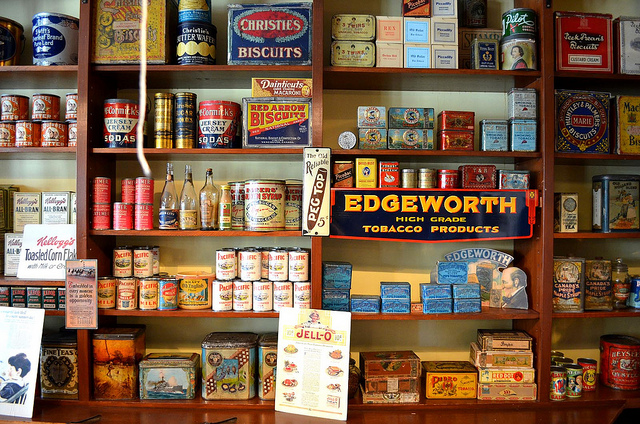3 Characteristics of Best Ecommerce Products (2014 Edition)

These days starting an ecommerce store can take no more than few hours max. But it still takes a killer product to bring online audiences to their knees.
It’s cheaper and easier to launch a new ecommerce store than ever before. Companies like Shopify and Bigcommerce offer ready-to-go platforms to build a store, literally in hours. Not to mention at a low monthly cost.
But being able to start selling in a few clicks doesn’t guarantee an online success. In spite of many technology advancements, one thing remains unchanged: it still takes a great product to make it.
One of the greatest misconceptions of online retail is that you can build a successful business by selling anything. But if that’s the case, then what about books, CDs, DVDs, games or everyday consumer electronics? All are great products, true. They however don’t offer a great potential to make you a living. Well, unless you have tons of cash to spend on advertising and promotion of course — but that’s a different story.
But for someone launching a small, niche store on a shoe string budget, these products offer very little potential for success.
What do these products have in common:
- They are commonly available (both online and offline). Many giant retailers stock their shelves with latest bestsellers, CDs or games. Not to mention tablets, mobile phones and other electronics. And given their power to negotiate lower prices and shipping rates, it is almost impossible to offer a better value to a price conscious consumer these days.
- They don’t avail of the convenience of the web. The majority of products sold online take advantage of it in one way or another. Yet these products mentioned above fail to meet those criteria:
- It is not always more convenient to buy them online.
- They aren’t always cheaper online (Well, some are. Quite often however, they cost the same in physical stores. And even if they are cheaper online, shipping costs balance the price out anyway.)
- It isn’t more pleasurable to buy them online – the thing with many of those products is that you want to own them now, there is a sense of urgency in your purchase. And ordering them online doesn’t satisfy this need.
Therefore, setting off to sell products meeting those criteria might not be a great idea. I know, I made this mistake with The Happy Bike, my bicycle storage store. Most of my products were available through many other outlets. Yes, I still turned profit but ultimately I was losing sales to giants like Amazon or Walmart, stocking the same products at a lower price.
Characteristics of Good Ecommerce Products
Knowing what makes a poor product choice, let’s look at what makes a product that can bring online audiences to their knees . Such product must be:
1. Offbeat and Unusual
Unusual products attract attention online and sell strongly. Moreover, they offer much higher margins.
But does unusual or upbeat mean that you have to create a completely new product not available on the market yet? No, of course not. But instead of selling what everyone else do, you can create or seek out an original version of it, targeted at a specific market. Hairybaby do that with t-shirts, with various niche themes like Father Ted t-shirts (UK comedy sitcom from 90’s).
Or The Cravory who turned a completely unattractive (from Ecommerce point of view) product as cookies into an online successful but turning them into subscription goodie. Similarly, SympathyFood, turned a “boring” product as food into an online success too by catering for a very specific audience.
2. Not Readily Available
Secondly, these products should not be readily available. If customers can also buy what you sell at their local Walmart or any other store (or order it from Amazon), what would stop them?
Just remember my experiences with The Happy Bike and losing sales to giants offering the same products at a lower price (and often with free shipping).
For products to succeed online, they need to offer a limited option to purchase. It doesn’t mean that you have to be the only one selling them (but if you can, brilliant) but at least you should stay clear from products that customers can purchase in places they often frequent.
Collectible cameras sells vintage photography equipment, definitely not something you’d buy in your local store. FrozenReptile built their business by offering, as the name might suggest, frozen reptile food. One of my favourite stores, Burning Shed offers a wide selection of specialist music, from Prog rock to Space rock and esoteric music. Needless to say, a lot of these records are not available where I live (Ireland) and I am sure that’s true for many of their other customers.
3. Intended for Specialized Uses
The last characteristics is that those products should be intended for specialised uses. It’s hard to sell generic products. But if what you sell targets users with a very specific need, you stand a much greater chance that the word on it will spread. Just look at BeardBrand, a company that sells beard oil and beard care products. Or Braindamagefilms who distribute only horror movies, often from small, independent production houses.
Conclusion
Not every product will sell well online. In fact, the best ones that will are products that can naturally create buzz around themselves, cater to a very specific audience and involve a sort of social element and innovation.
Creative commons image by Tom Magliery / Flickr






